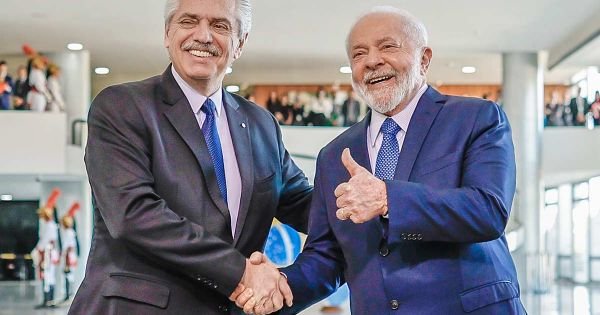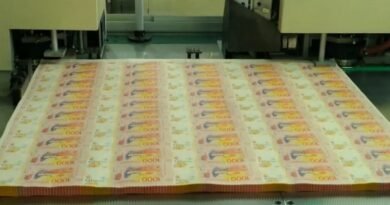Brazil and Argentina strengthen alliance
[ad_1]
Brazil and Argentina strengthen alliance
Lula also insisted on a specific reference currency for regional trade
Brazilian President Luiz Inácio Lula da Silva Monday said that his country and Argentina have adopted almost 100 actions to give substance to joint development between South America’s two largest economies, Agencia Brasil reported.
According to Lula, the Brazilian government is also working on the creation of a comprehensive financing line for Brazilian exports to Argentina.
Today we have adopted an ambitious action plan for the re-launch of the strategic alliance, Lula said alongside Argentine President Alberto Fernández at the Itamaraty Palace in Brasilia.
The Argentine president’s state visit comes at Lula’s invitation as part of the celebration of 200 years of diplomatic relations. Argentina was the first country to recognize independence and establish relations with Brazil, on June 25, 1823.
We reaffirm today that integration is a state policy and that our partnership must be cultivated at the highest level. Our economic integration means interdependence, Lula said. We have built a relationship based on the exchange of goods with high added value and on the productive integration of our economies. Our reciprocal investments are responsible for almost one hundred thousand jobs, highlighted the president.
Lula also said he was very pleased with the positive perspectives for financing from the National Bank for Economic and Social Development (BNDES) for the exportation of products for the construction of the Presidente Néstor Kirchner Gas Pipeline. Argentina has supported the proposal to build a gas pipeline from the Vaca Muerta shale gas reserves to Brazil.
It doesn’t make sense for Brazil to lose space in the Argentine market to other countries because they offer credit and we don’t. Everybody wins. Everybody wins, Brazilian companies and workers, and Argentine consumers, added Lula, about the creation of a financing line for Brazilian exports to Argentina.
During his brief speech, Lula mentioned the adoption of a specific reference currency for regional trade, to reduce operational costs and dependence on foreign currencies. We need to move in this direction, with new and creative solutions that allow greater financial integration and facilitate our exchanges, he said.
Argentina is Brazil’s third main trading partner. In 2022, Brazilian exports to Argentina reached US$ 15.3 billion. Imports of Argentine products, in turn, reached US$ 13 billion.
Lula also decorated Fernández with the Grand Necklace of the National Order of the Southern Cross, given to foreign personalities worthy of recognition from the Brazilian nation. The president also decorated the first lady of Argentina, Fabíola Yañez, with the Order of Rio Branco.
Both are representatives of a nation for which we Brazilians have respect and affection and who honor us on this very special date, said the Brazilian president.
This is the fifth meeting of the two leaders in 2023. Besides Lula’s inauguration, in January, in Brasilia, the Brazilian president made an official visit to Argentina on his first international trip in his third term. On January 23, a joint declaration with multiple commitments was signed.
Fernández, on the other hand, came twice to Brasilia in May, once to meet directly with President Lula and the other time to participate in the South American presidents’ summit.
Brazil’s largest trading partner in South America, Argentina faces a serious economic crisis, with devaluation of the local currency, loss of purchasing power, and high inflation rates. A historic drought also affects Argentina’s grain crops, deepening the crisis and putting at risk the goals agreed upon by the country with the International Monetary Fund (IMF) in the payment of its debts.
Lula has articulated initiatives to help the neighboring country, mainly to avoid a drop in Brazilian exports. Last month, in Japan, the Brazilian spoke with IMF Managing Director Kristalina Georgieva about Argentina’s economic situation, in addition to seeking support from the BRICS, an economic bloc made up of Brazil, Russia, India, China, and South Africa. (Source: Agencia Brasil)
[ad_2]
Source link




